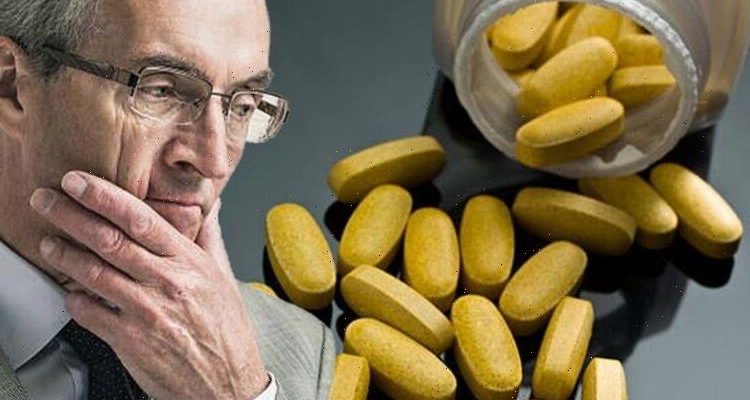Dr Oscar Duke issues warning over ‘fizzy’ vitamins
We use your sign-up to provide content in ways you’ve consented to and to improve our understanding of you. This may include adverts from us and 3rd parties based on our understanding. You can unsubscribe at any time. More info
Vitamin B12 deficiency anaemia is a condition in which your body does not have enough healthy red blood cells, due to a lack of vitamin B12. NHS Inform says vitamin B12 or folate deficiency anaemia can cause a wide range of symptoms. It says a decline in your mental abilities, such as memory, understanding and judgement may be a sign of anaemia caused by the deficiency.
The NHS says general symptoms of anaemia may include extreme tiredness, breathlessness, feeling faint and headaches.
You may also notice that you have pale skin, noticeable heartbeats, are hearing sounds coming from inside the body, rather than from an outside source, as well as noticing a loss of appetite and weight loss.
If you have anaemia caused by a vitamin B12 deficiency, you may have other symptoms that affect your behaviour.
The NHS says you may notice irritability, depression, changes in the way you think, feel and behave, and a decline in your mental abilities, such as memory, understanding and judgement.
READ MORE: Migraines and neck pain – top chiropractor shares ways to ‘easily’ overcome maladies

Unfortunately, vitamin B12 deficiency can sometimes lead to infertility, though this usually improves with appropriate vitamin B12 treatment.
As with a vitamin B12 deficiency, a lack of folate can also affect an unborn baby’s growth and development in the womb.
“If you have a vitamin B12 deficiency caused by pernicious anaemia, a condition where your immune system attacks healthy cells in your stomach,” explains the NHS.
Some of these symptoms can also happen in people who have a vitamin B12 deficiency but have not developed anaemia.
There are several risk factors for vitamin B12 deficiency anaemia including a family history of the disease, autoimmune diseases, including type 1 diabetes and Crohn’s disease.
They also include HIV, some medicines, strict vegetarian diets, and being an older adult, according to The Johns Hopkins University.
According to the NHS, if you have a vitamin B12 deficiency, perhaps caused by a lack of the vitamin in your diet, you may be prescribed vitamin B12 tablets to take every day between meals.
Vitamin B12 deficiency anaemia is usually treated with injections of vitamin B12.
You should see a GP if you’re experiencing symptoms of vitamin B12 or folate deficiency anaemia, as these conditions can often be diagnosed based on your symptoms and the results of a blood test.
The Mayo Clinic notes: “People who follow a vegetarian or vegan diet might be prone to deficiency because plant foods don’t contain vitamin B12.
“Older adults and people with digestive tract conditions that affect absorption of nutrients also are susceptible to vitamin B12 deficiency.”
Both vitamin B12 deficiency and folate deficiency are more common in older people, affecting around one in 10 people aged 75 or over and one in 20 people aged 65 to 74, says the NHS.

The NHS warns: “Taking doses of folic acid higher than 1mg can mask the symptoms of vitamin B12 deficiency, which can eventually damage the nervous system if it’s not spotted and treated.”
The NHS says those aged 19 to 64 need about 1.5 micrograms a day of vitamin B12.
The health body explains if you eat meat, fish or dairy foods, you should be able to get enough vitamin B12 from your diet. It says taking 2.0 micrograms or less a day of vitamin B12 in supplements is unlikely to cause any harm.
Vitamin B-12 injections or nasal spray might be prescribed to treat vitamin B-12 deficiency.
Source: Read Full Article
